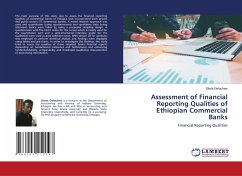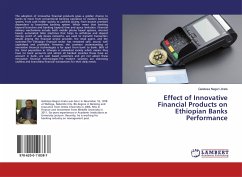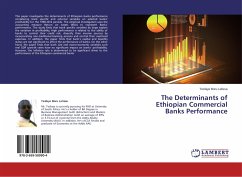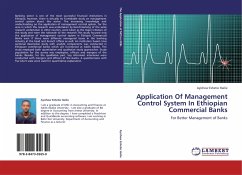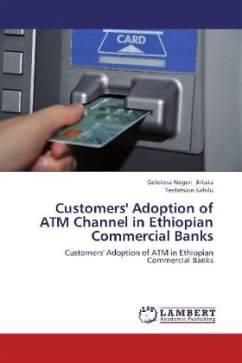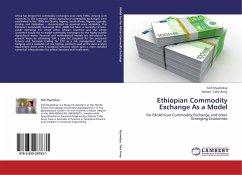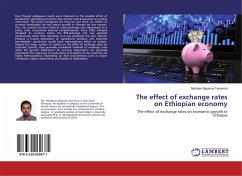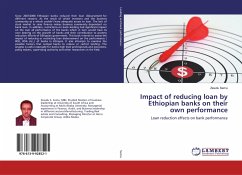
Impact of reducing loan by Ethiopian banks on their own performance
Loan reduction effects on bank performance
Versandkostenfrei!
Versandfertig in 6-10 Tagen
36,99 €
inkl. MwSt.

PAYBACK Punkte
18 °P sammeln!
Since 2007/2008 Ethiopian banks reduced their loan disbursement for different reasons. As the result of which investors and the business community as a whole couldn't have adequate access to loan. The lack of stock market to raise finance makes business community dependent on bank loan. In addition, restrictions on bank lending had significant impact on the over all performance of the banks which in turn would have its own bearing on the growth of banks and their contribution to poverty reduction efforts of Ethiopian government. This book intends to assess the impact of reducing or restricting...
Since 2007/2008 Ethiopian banks reduced their loan disbursement for different reasons. As the result of which investors and the business community as a whole couldn't have adequate access to loan. The lack of stock market to raise finance makes business community dependent on bank loan. In addition, restrictions on bank lending had significant impact on the over all performance of the banks which in turn would have its own bearing on the growth of banks and their contribution to poverty reduction efforts of Ethiopian government. This book intends to assess the impact of reducing or restricting loan disbursement on the performance ( ROE, ROA etc.,) of banks in Ethiopia. It also attempts to examine the possible factors that compel banks to reduce or restrict lending. The analysis is useful especially for banks high level professionals and executives, policy makers, supervising authority and other researchers in the field.



